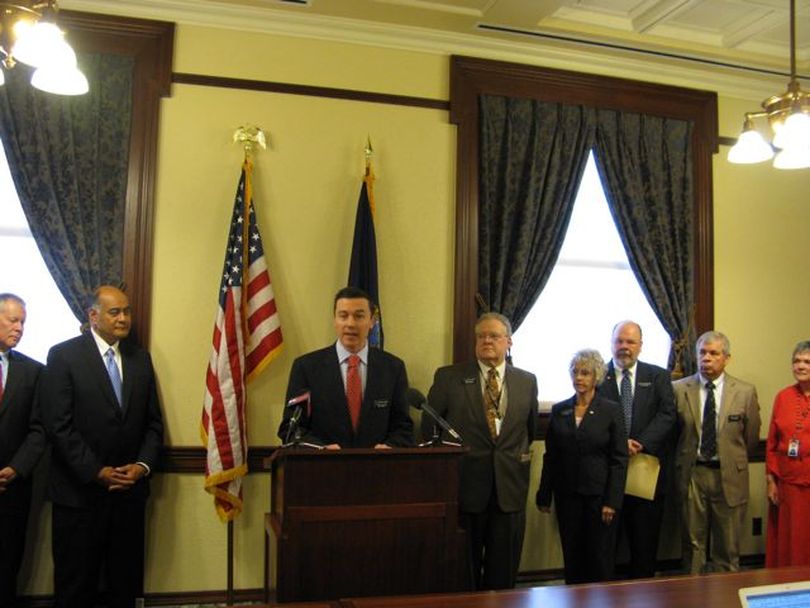Dems unveil ‘iJobs 2.0,’ slate of seven jobs bills

Legislative Democrats today unveiled their "iJobs 2.0" package, which includes seven pieces of legislation, from tax credits for new agricultural processing operations, to a "finders fee" tax credit for businesses that persuade vendors or partners to relocate to the state, to a "Buy Idaho First Contracting Act" that would allow agencies to award contracts to Idaho companies even if they're up to 5 percent higher than the lowest out-of-state bidder.
"We have an obligation ... because we are in very dire economic times right now," said Rep. Brian Cronin, D-Boise. "What we can do is create an environment where prosperity is possible. That is what government does ... and we're certainly hearing that from our constituents."
Three of the measures already have been introduced as personal bills; the three others have been presented to committee chairmen and House and Senate Democrats said they're receptive to holding hearings on introducing them. The Dems also talked with Gov. Butch Otter about the bills this morning, and "he expressed some interest," Cronin said, and have talked with the state commerce director. House Minority Leader John Rusche, D-Lewiston, said, "We know that at 20 percent of the body, we're not going to drive an agenda." He said the Democrats are calling on Republicans to work with them on the concepts and "make the bills better." Click below for more on the bills.
Here are the six bills and one non-binding memorial:
HB 435, the "Corporate Tax Incentive and Accountability Act," would require public disclosure of details of tax incentives directed to corporations, including purpose, amount, and how many jobs were created each year. Said Cronin, "We want to be sure that every dollar we spend on economic development truly puts people to work."
The "Value-Added Agriculture and Farmer Empowerment Act" would explore granting a 50 percent tax credit for every dollar an Idaho farmer or rancher invests in a state-of-the-art agricultural processing venture or majority owned farmer cooperative.
An "Idaho Partnership Bank," modeled after a North Dakota project, would make more capital available to small businesses by partnering with local community banks.
The "Business Relocation & Finder's Fee Tax Credit" would encourage Idaho businesses to persuade vendors, partners and others to relocate the state; both the existing business and the relocating business would get a $500 tax credit for each full-time employee hired by the relocating business for two years.
The "Buy Idaho First Contracting Act" would allow state agencies to award contracts to Idaho companies even if their bids are up to 5 percent higher than the lowest out-of-state bid.
The "Micro Enterprise Bridge Loan Program" would bond to raise capital for loans of up to $35,000 for start-up, expansion or modernization of small businesses and entrepreneurial start-ups.
A non-binding memorial to Congress and the FCC would press for better rural broadband service, encouraging use of the Universal Service Fund in cooperation with local providers to extend better broadband service to rural areas.
